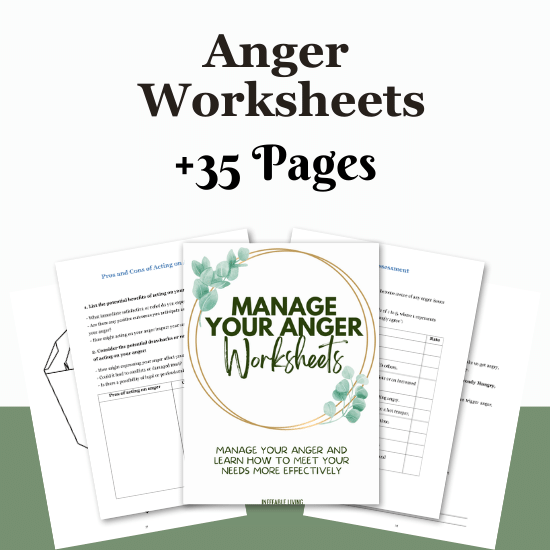Anger is a natural human emotion, but when it becomes uncontrollable and leads to extreme outbursts, it might be more than just typical anger issues.
Intermittent Explosive Disorder (IED) is a condition characterized by sudden episodes of unwarranted anger.
This blog post will delve into what IED is, how it differs from other disorders like bipolar disorder, its causes, and the treatment options available.
What is Intermittent Explosive Disorder (IED)?
Intermittent Explosive Disorder is defined by recurrent, sudden episodes of impulsive, aggressive, violent behavior or angry verbal outbursts that are grossly out of proportion to the situation.
These episodes can cause significant distress and impairment in an individual’s daily life, relationships, and work.
Diagnosing Intermittent Explosive Disorder
According to the DSM-5, the criteria for diagnosing IED include:
1. Frequent Low-Intensity Outbursts: These include verbal aggression or physical aggression that does not cause physical injury or property damage. These outbursts occur on average twice a week for at least three months.
2. Infrequent High-Intensity Outbursts: These involve physical aggression that causes injury or property damage, occurring about three times a year.
3. Outbursts are Disproportionate: The aggression is grossly out of proportion to the provocation or any precipitating stressors.
4. Minimum Age: The individual must be at least six years old.
5. Non-Premeditated: The outbursts are not premeditated and are not committed to achieve a tangible objective.
6. Significant Distress or Impairment: The outbursts cause distress in the individual or impair their occupational or social functioning.
Related: Top 14 CBT Exercise For Anger Management (+FREE Anger Worksheets)
Causes of Intermittent Explosive Disorder
The exact cause of IED is not known, but several factors may contribute:
– Genetic Predisposition: Having a first-degree relative with IED increases the risk.
– Brain Chemistry: Abnormalities in serotonin levels and hyperreactivity of the amygdala, which is involved in emotional regulation, are linked to IED.
– Environmental Factors: Exposure to violence or aggressive behavior in childhood can increase the risk of developing IED.
Treatment Options for IED
1. Identify Triggers and Warning Signs
Understanding what triggers your explosive outbursts is crucial for managing IED.
Common triggers can include stress, frustration, feeling overwhelmed, or specific situations and interactions.
Action: Keep a journal to track your outbursts. Note the circumstances, your thoughts, feelings, and any physical sensations that preceded the explosion. This can help you identify patterns and triggers.
Related: Anger Rumination: Top 10 Tips to Let Go
2. Develop Healthy Coping Mechanisms
Learning to cope with stress and frustration in healthy ways can reduce the frequency and intensity of outbursts.
Action: Practice relaxation techniques such as deep breathing, progressive muscle relaxation, or mindfulness meditation. Engage in regular physical activity, such as walking, running, or yoga, to help manage stress and improve mood.
3. Implement Time-Outs
Taking a time-out can help you regain control when you feel an outburst coming on.
Action: When you start to feel angry, remove yourself from the situation if possible. Take a few minutes to calm down and practice deep breathing or another relaxation technique before re-engaging.
Related: Assertive Anger: What It Is & How to Practice It
4. Improve Communication Skills
Effective communication can help prevent misunderstandings and reduce the likelihood of conflicts that lead to outbursts.
Action: Practice assertive communication by expressing your needs and feelings clearly and respectfully. Use “I” statements to avoid blaming others. For example, “I feel frustrated when the house is messy because I need a clean space to relax.”
5. Create a Support System
Having a support system can provide emotional assistance and practical advice for managing IED.
Action: Share your struggles with trusted friends or family members who can offer support. Consider joining a support group for individuals with anger management issues to share experiences and coping strategies.
Related: Top 10 Silent Anger Symptoms
6. Avoid Alcohol and Drugs
Substance use can lower inhibitions and increase the likelihood of aggressive outbursts.
Action: Avoid alcohol and drugs, particularly in situations where you might feel stressed or frustrated. If substance use is a problem, seek help from a professional.
7. Practice Self-Care
Taking care of your physical and emotional health can help you manage stress and reduce the likelihood of outbursts.
Action: Ensure you get enough sleep, eat a balanced diet, and engage in regular physical activity. Make time for activities that you enjoy and that help you relax.
8. Plan for Relapses
Understand that managing IED is a process, and setbacks can occur. Planning for relapses can help you handle them more effectively.
Action: Develop a relapse prevention plan with your therapist. This plan should include strategies for managing triggers, steps to take if you feel an outburst coming on, and people you can contact for support.
Related: Anger Iceberg: How to Use It (+FREE Anger Iceberg Worksheet PDF)

Conclusion
By implementing these practical strategies, individuals with IED can reduce the frequency and intensity of their outbursts, leading to improved relationships and a better quality of life.
Remember, change takes time, and seeking support from professionals and loved ones can significantly aid in the journey towards managing IED effectively.



